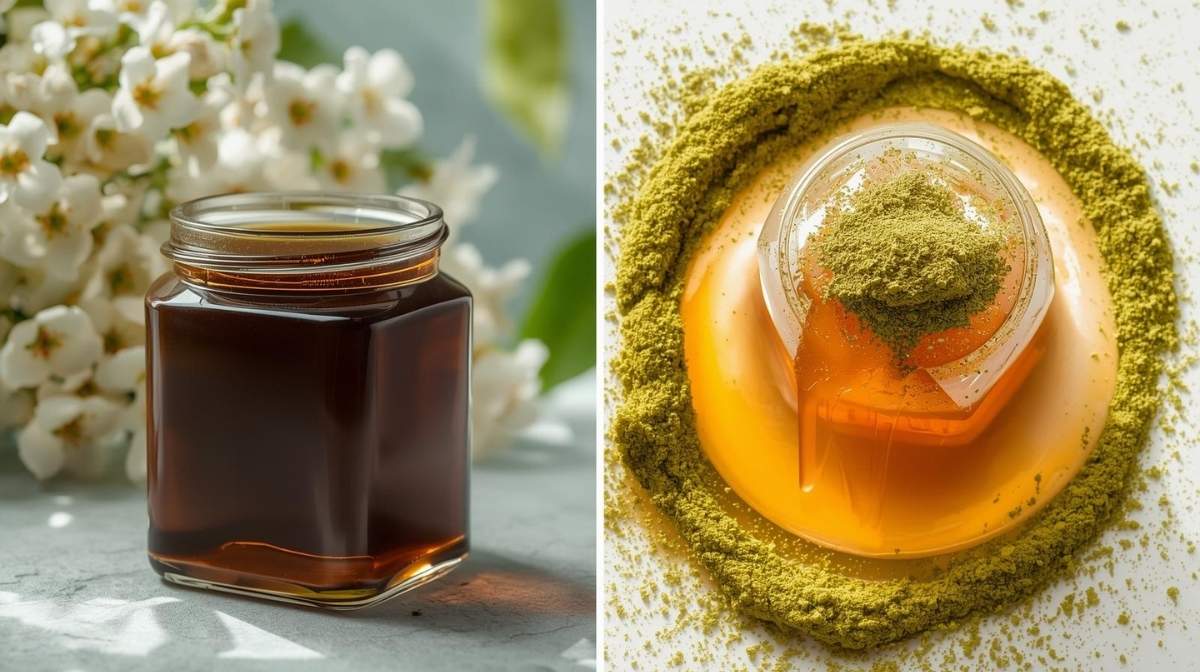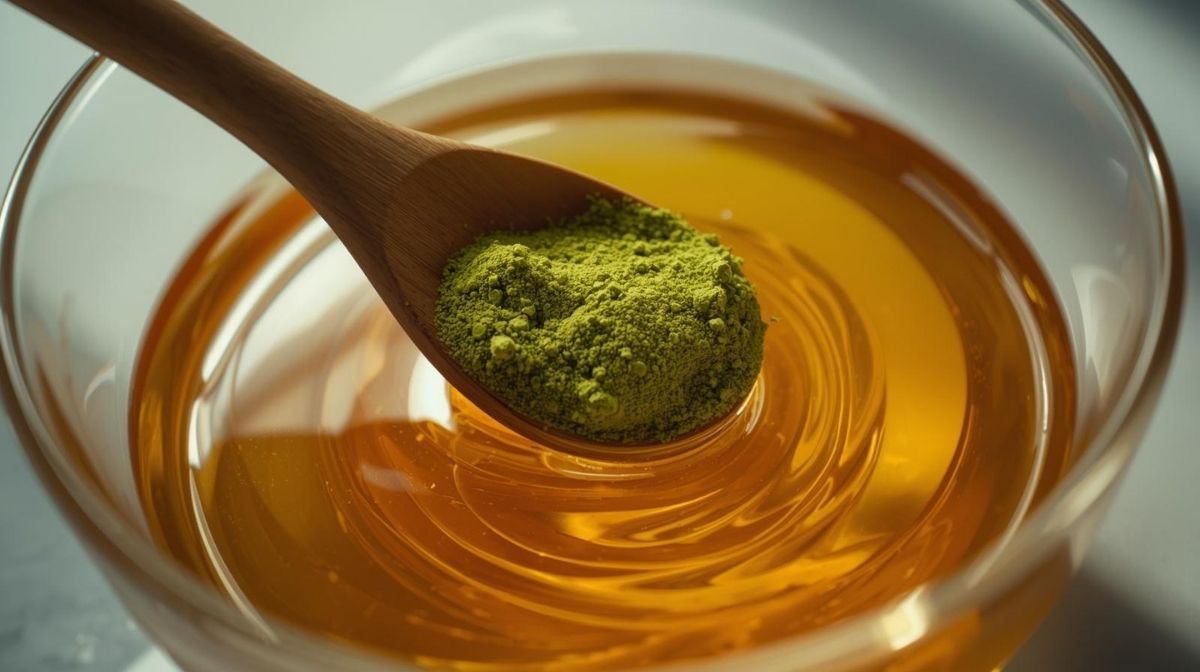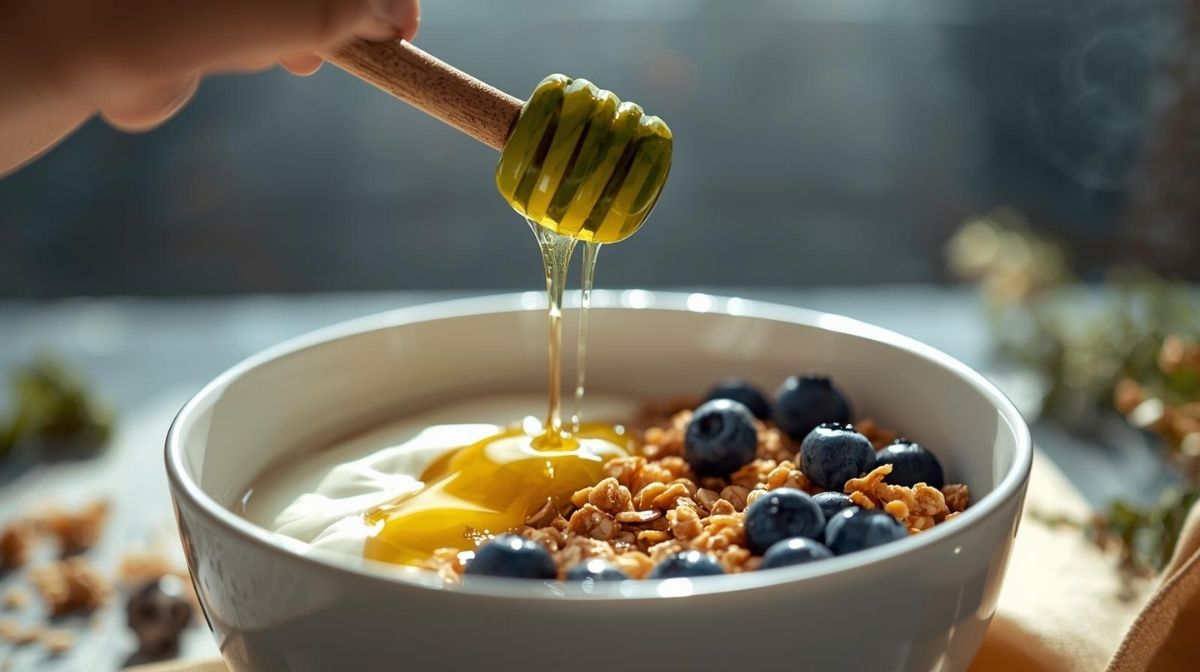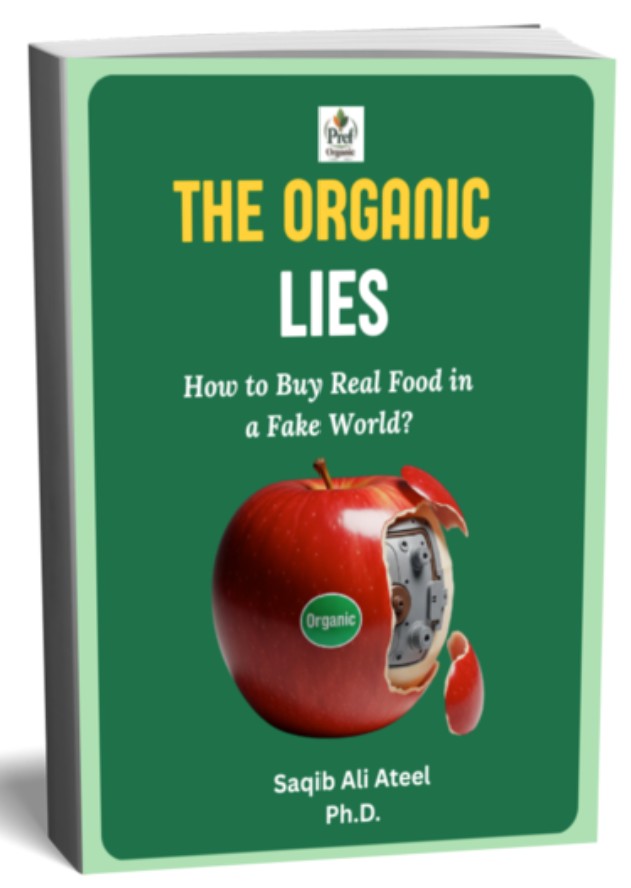🍯 Moringa Honey: The
Ultimate Guide to a True Superfood Combination
When you see a jar labeled moringa honey, a smart question should immediately come to mind: What exactly is inside? Is this a rare, special honey made by bees from moringa flowers, or is it simply moringa powder mixed with regular honey? This confusion is entirely understandable, and the answer is crucial to knowing what you're buying and the benefits you can expect.
As a student in agriculture with a lifetime of farming experience, I've learned that the path from the plant to the pantry is what defines a food's actual value. You, as a proactive protector for your family, deserve that clarity. You want to know if you're investing in a genuine, high-value product or a simple blend you could easily make yourself.
Consider this your definitive guide. We are going to unravel the mystery of moringa and honey, explore the powerful benefits of this combination, and I'll even share my trusted, farm-tested recipe for making a potent version right in your own kitchen.
Quick Guide: Maximizing Moringa Honey Benefits
- 🔍 Know What You Are Buying: There is a critical difference between rare monofloral honey (made by bees from nectar) and infused honey (a blend of powder and honey). Understanding this ensures you get the wellness value you expect.
- 🌡️ The "No-Heat" Rule: When making your own infusion, never heat the honey. Pasteurization or cooking destroys the beneficial enzymes. Simply fold the powder into raw, liquid honey to preserve its medicinal properties.
- 🛡️ Powerful Food Synergy: Combining these two ingredients creates a "wellness tool" greater than the sum of its parts. You get the vitamins and iron from Moringa alongside the antibacterial/anti-inflammatory power of raw honey.
- 🥞 Kid-Friendly Nutrition: The natural sweetness of honey effectively masks the strong, earthy taste of Moringa leaves, making it the perfect "Trojan Horse" for getting essential nutrients into children's diets via yogurt or toast.
The "Insider's Proof": Unraveling the Two Types
of Moringa Honey 🧑🌾
The most important thing to understand is that not all moringa honey is created equal. From an agricultural perspective, there's a world of difference between what the bees make and what we can make.
True Monofloral Moringa Honey: A Gift from the Bees 🐝
This is the real, artisanal moringa honey.
Growing up on a farm taught me to have a deep respect for pollinators. True monofloral honey is a perfect example of their magic. It’s produced when beekeepers place their hives in a large grove of moringa trees. The bees then collect nectar almost exclusively from the moringa flowers.
The result is a unique honey that carries the subtle essence of the moringa flower. This process, known as apiculture, requires incredible skill and specific agricultural conditions, which is why true monofloral moringa honey is rare, often expensive, and typically has a thick consistency and a dark brown color. It’s a genuine product of the land and the bee.
Moringa-Infused Honey: A Powerful DIY Wellness Blend 🌱
This is the practical, potent, and instrumental version that you can create in your own kitchen.
Moringa-infused honey is a simple blend of high-quality moringa leaf powder and raw honey. Don't think of this as a lesser version; think of it as a different, highly effective wellness tool. By mixing the powder directly into the honey, you are combining the entire nutrient profile of the moringa leaf—including its vitamins, minerals, and fiber—with the beneficial enzymes and compounds of raw honey.
This is the version that offers you complete control over quality and potency.
 True monofloral moringa honey is rare and characterized by a dark brown color, while the infused version is a manual blend of green leaf powder and raw honey that you can control for potency.
True monofloral moringa honey is rare and characterized by a dark brown color, while the infused version is a manual blend of green leaf powder and raw honey that you can control for potency.How to Make Your Own Potent Moringa-Infused Honey ✅
Ready to make your own wellness elixir? My hands-on experience has taught me that the best creations come from the best ingredients. This recipe is straightforward, but its power lies in the quality of what you put into it.
Choosing Your Ingredients: The Foundation of Quality
1. Select a High-Quality Moringa Powder: Look for a powder that is 100% pure, certified organic, and has a vibrant green color. A bright color is often a sign that the leaves were dried slowly at low temperatures, which helps preserve their delicate nutrients.
2. Use Raw, Unpasteurized Honey: The heating process of pasteurization destroys many of the beneficial enzymes and antioxidants that make honey so special. Using raw honey ensures you get its full antibacterial and anti-inflammatory benefits.
The Simple, No-Heat Recipe
This method uses no heat to protect the integrity of both the moringa and the raw honey.
Ingredients:
- 1 cup of raw, liquid honey
- 2 tablespoons of organic moringa powder
Instructions:
1. Combine: In a clean, dry glass jar, add the honey first.
2. Add Moringa: Sprinkle the moringa powder on top of the honey.
3. Fold Gently: Using a clean spoon or spatula, gently fold the moringa powder into the honey. Don't whisk or stir vigorously, as this can incorporate air bubbles. Just slowly and methodically fold the green powder into the golden liquid until it is fully combined.
4. Store: Seal the jar and store it in a cool, dark place like your pantry. It does not need to be refrigerated.
The mixture will be ready to use immediately and will keep for months.
 To preserve the enzymes in raw honey, avoid vigorous whisking; instead, gently fold the moringa powder into the liquid to prevent air bubbles and maintain ingredient integrity.
To preserve the enzymes in raw honey, avoid vigorous whisking; instead, gently fold the moringa powder into the liquid to prevent air bubbles and maintain ingredient integrity.The Synergistic Benefits of Honey and Moringa 🛡️
When you combine honey and moringa, you create something more powerful than the sum of its parts. It’s a perfect example of food synergy.
A Powerhouse of Nutrition and Protection
- Moringa's Contribution: The moringa powder brings a full spectrum of nutrients to the table. It's packed with vitamins A and C, iron, potassium, calcium, and all nine essential amino acids. It also delivers powerful antioxidants like quercetin and anti-inflammatory compounds that help protect your cells from damage.
- Honey's Contribution: Raw honey is a well-known natural remedy. It has its own antibacterial and anti-inflammatory properties and is famously used to soothe sore throats and coughs.
- The Combined Effect: Together, they create a delicious, nutrient-dense elixir. It’s an immune-boosting, anti-inflammatory, and highly nourishing food that can support your family's health in a gentle, natural way.
Practical Ways to Use Your Moringa Honey
This blend is incredibly versatile. Here are a few ways my family and I use it:
- The Soothing Spoonful: A teaspoon taken directly can help soothe a scratchy throat or a nagging cough.
- The Morning Boost: Stir a spoonful into a glass of warm (not hot) water or tea for a gentle, caffeine-free energy lift.
- The Healthy Sweetener: Drizzle it over oatmeal, yogurt, pancakes, or a slice of toast. It's a fantastic way to add nutrients to breakfast.
- The Kid-Friendly Dose: The sweetness of the honey makes the earthy taste of moringa much more appealing to children. It's a "Proactive Protector's" secret weapon!
 Beyond a simple sweetener, this blend utilizes honey's natural sugars to mask the earthy taste of moringa, making it an effective way to deliver vitamins and minerals to children
Beyond a simple sweetener, this blend utilizes honey's natural sugars to mask the earthy taste of moringa, making it an effective way to deliver vitamins and minerals to childrenYour New Go-To Wellness Tool ✨
You no longer have to wonder about moringa honey. You are now empowered with the clarity to choose what's right for you. You can seek out the rare, artisanal monofloral honey for a unique taste experience, or you can roll up your sleeves and create your own potent, practical moringa-infused honey right in your kitchen.
You've added another valuable, versatile, and delicious tool to your family's wellness basket.
To learn more about the full spectrum of Moringa's capabilities, explore our complete guide to Moringa Benefits.

Meet Saqib
Saqib Ali Ateel is a PhD Scholar by training and a "student of the soil" by nature. He combines deep research, hands-on farming wisdom, and agricultural systems supervision to reveal what’s really on your plate. His mission is simple: to help your family navigate the food industry's complexity so you can eat cleaner, safer, and smarter.
